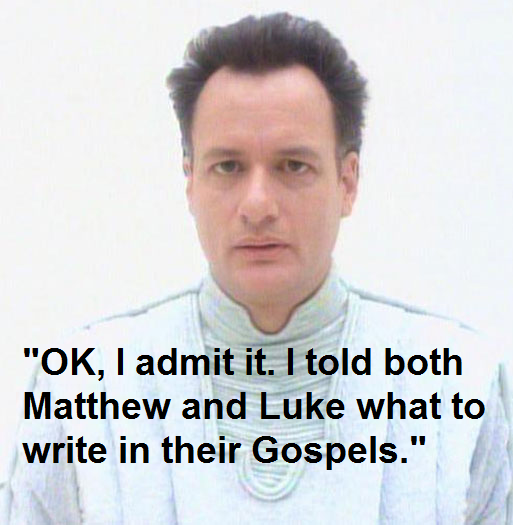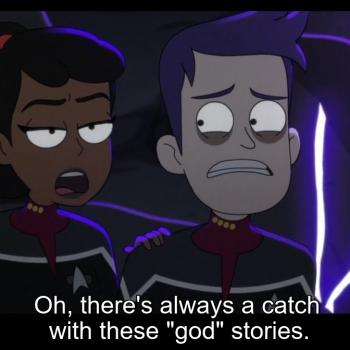I couldn’t resist (with inspiration from a Facebook comment by Carl Beck Sachs) using this Star Trek phrase in reference to the range of views that scholars hold on the hypothetical document Q, proposed to explain the overlaps between Matthew and Luke on material that is not in Mark. (See the bottom of the post for an image that takes the connection further).
Mike Kok has been exploring the evidence for Q on his blog, asking whether Luke knew Matthew’s additions to Mark and Matthew’s special material. The posts highlight important aspects of the question.
It is relatively simple to come up with a solution to the Synoptic problem – but not at all simple to come up with a simple solution which does justice to all the evidence.
I think that most scholars who’ve worked on the subject will acknowledge that there is no precise fit of the evidence to one theory that definitively excludes the others. There is no way to definitively prove that Luke could not simply have disliked the characteristics of the Matthean material he did not include, while liking the “Q” material he found in Matthew. And there is no way to definitively prove that Luke could not have read Matthew’s infancy story and chosen to rewrite it. In all such instances, our judgments about what is most plausible is quite subjective. And no modern scholar’s subjective impression, based on what we would or would not do, can be assumed to match the mind of a first-century author. Ancient authors did all sorts of things that puzzle us – either deliberately or accidentally or both.
And so there is good reason why we do not have an overwhelming Q consensus, but a “Q continuum.” And it makes for a vibrant field with lots of potential for ongoing research.
But I do worry that there are some outside of the field of Synoptic Gospel studies who may be inclined to jump on a particular bandwagon, not because of a decisive case that has been offered for that viewpoint, but because they think it is the clear and definitive solution, only because of a lack of familiarity with just how complex and ambiguous the evidence really is.













